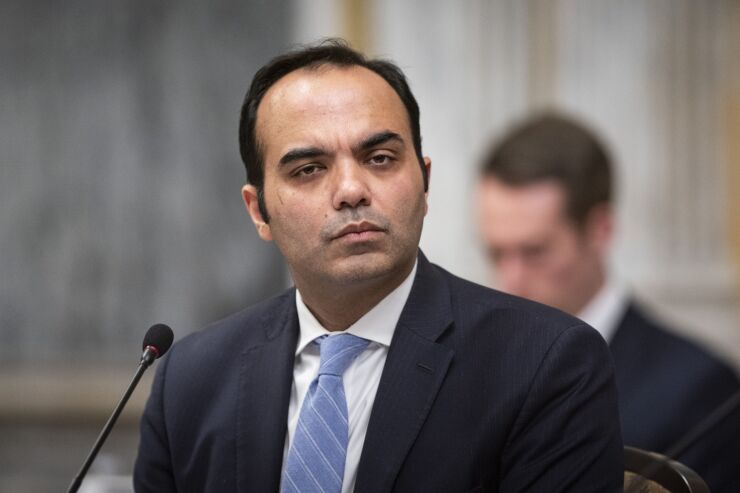
The Consumer Financial Protection Bureau's
In January, the CFPB proposed setting a price cap on overdraft fees at the largest 175 banks, one of a
"With no meaningful source of revenue to support the cost of deposit products, the most likely outcome would be a retreat from consumer deposit products that benefit lower-income and underbanked consumers as banks simply refocus on lower-risk and higher-margin business lines such as commercial services," wrote Brent Tjarks, executive director of the Mid-size Bank Coalition of America, which represents more than 100 midsize banks.
The rule, which applies only to financial institutions with assets over $10 billion, would classify overdraft services as extensions of credit and restrict banks from recouping more than their costs.
"A proposal with the professed goal of improving the financial health of consumers would achieve the opposite result," the American Bankers Association said in
When the bureau
Bankers have been up in arms about
Four students in the master's program in public policy at the University of Virginia signed a letter stating that "overdraft fees have repeatedly taken advantage of Americans, particularly younger ones with less experience in banking."
The letter, signed by Hannah King, Matt Beiger, Kelly O'Connor, and Grace Makin, said that "overdraft fees [have become] a source of profit for banks and credit unions," citing $12.6 billion in revenue from overdraft fees in 2019.
Since then, however, banks have cut overdraft fees by 50% due to pressure from the CFPB and consumers. In 2021, Ally Financial in Detroit was
Despite the major decline in overdraft fees, the CFPB issued a complicated proposal to further rein them in.
It would eliminate the longstanding exemption of overdraft fees from the definition of finance charges in Regulation Z, which in implementing the Truth in Lending Act requires that lenders disclose finance fees upfront and in clear language.
Further, overdraft services accessible by a card would be subject to the Credit Card Accountability Responsibility and Disclosure Act's provisions of Reg Z.
Banks said the proposal threatens consumer-friendly options in overdraft such as sending low-balance alerts, linking a customer's checking account to another account, providing overdraft "grace periods" that allow a customer to make a deposit and avoid a fee, and imposing de minimis caps on total fees that a bank may charge per day.
"The proposed rule puts this progress into serious jeopardy," wrote Tjarks.
Julie Gliha, vice president of regulatory compliance at the Iowa Bankers Association, said that many consumers desperately need and use overdraft services.
"Customers consistently express appreciation for this service and feel the fee assessed against the account for this payment is reasonable — especially considering this one-time charge to pay the item helps them avoid merchant fees, late rent or mortgage payments, and provides them flexibility to cover emergencies," Gliha wrote.
But the proposed rule does not prohibit overdraft fees entirely, but rather gives large financial institutions two ways to continue charging overdraft fees and avoid the new definition of finance charge and Reg Z disclosures. The first option is to set fees at or below the financial institution's break-even point. A second option is to charge a benchmark fee that would likely be between $3 and $14. The CFPB requested comments on the exemption and what the appropriate threshold should be.
Bank trade groups also claim that the CFPB had not identified any market failure that requires the regulation and that its reinterpretation of TILA has no support in the statute itself.
"Banks in general are under unprecedented pressure to reduce nearly all sources of revenue derived from deposit products, from the CFPB's persistent focus on so-called 'junk fees' to the Federal Reserve Board's proposal to curb debit card interchange fees," Tjarks wrote. "Even assuming that the bureau has the authority to redefine 'credit' under the Truth In Lending Act to shoehorn discretionary overdraft services into its scope — a point we do not concede — the one-size-fits-all approach put forth by the bureau will harm the very consumers it is meant to benefit."






